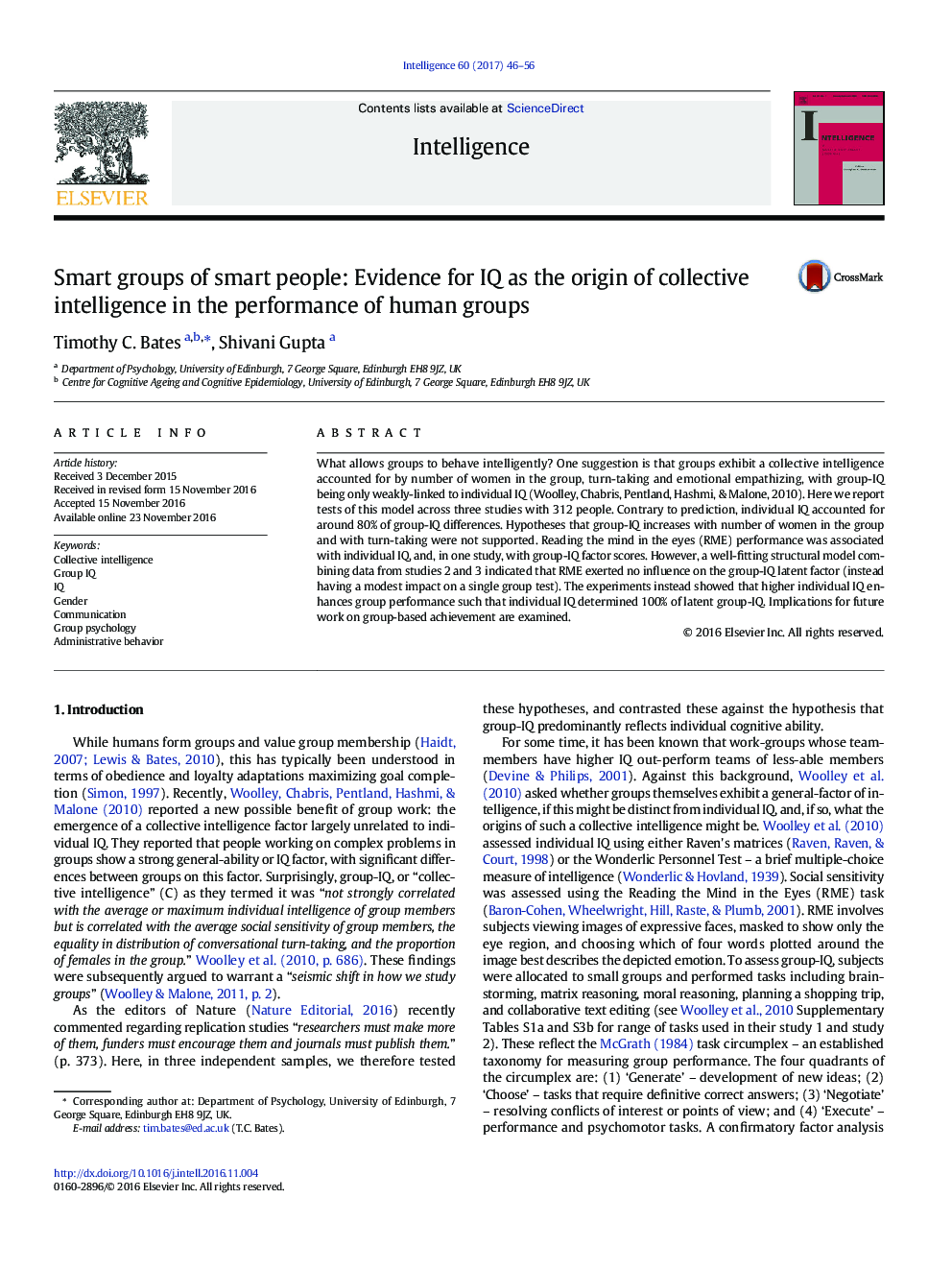| Article ID | Journal | Published Year | Pages | File Type |
|---|---|---|---|---|
| 5042121 | Intelligence | 2017 | 11 Pages |
â¢We examined group-IQ in three independent studies.â¢Gender balance and turn-taking were unrelated to group performance.â¢Social sensitivity had no impact on latent group-IQ.â¢Individual IQ emerged as the cause of group-IQ.â¢Group-IQ almost exclusively reflects individual cognition.
What allows groups to behave intelligently? One suggestion is that groups exhibit a collective intelligence accounted for by number of women in the group, turn-taking and emotional empathizing, with group-IQ being only weakly-linked to individual IQ (Woolley, Chabris, Pentland, Hashmi, & Malone, 2010). Here we report tests of this model across three studies with 312 people. Contrary to prediction, individual IQ accounted for around 80% of group-IQ differences. Hypotheses that group-IQ increases with number of women in the group and with turn-taking were not supported. Reading the mind in the eyes (RME) performance was associated with individual IQ, and, in one study, with group-IQ factor scores. However, a well-fitting structural model combining data from studies 2 and 3 indicated that RME exerted no influence on the group-IQ latent factor (instead having a modest impact on a single group test). The experiments instead showed that higher individual IQ enhances group performance such that individual IQ determined 100% of latent group-IQ. Implications for future work on group-based achievement are examined.
Graphical abstractDownload high-res image (137KB)Download full-size image
